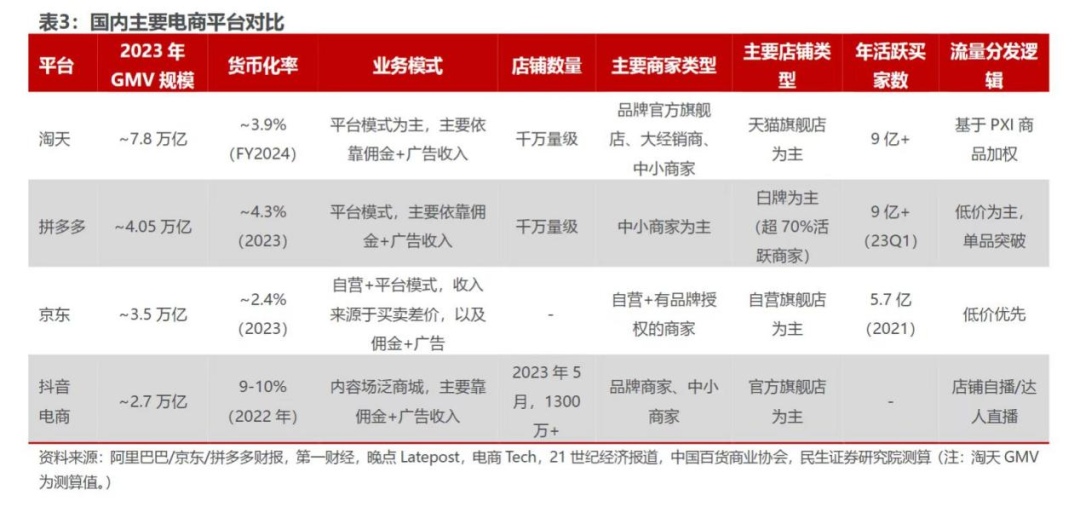Ye Guofu also wants to advise Zhang Yiming
![]() 11/28 2024
11/28 2024
![]() 510
510

Physical enterprise entrepreneurs gang up on Douyin.
Author|Wen Yong
Editor|Yang Zhou
The world has suffered from Douyin for a long time. After the algorithm does harm, e-commerce involution has become a new problem for Douyin.

"Wake up, everyone! ByteDance collected 400 billion yuan in advertising fees on 2 trillion yuan of GMV last year!" Recently, Ye Guofu, the founder of MINISO, called out on WeChat Moments. This is another physical enterprise entrepreneur who has spoken out against Douyin after Nongfu Spring founder Zhong Shanshan criticized Douyin's algorithm for doing harm.
Dramatically, the video of "Deteriorating E-commerce Environment on Douyin" that Ye Guofu reposted with accompanying text has now been reported and removed by ByteDance.
In the video, the blogger bluntly stated, "The deterioration of the Douyin environment does not spare any big or small brands, white-label products, big or small influencers." These remarks also resonated strongly in entrepreneurial circles, with Focus Media founder Jiang Nanchun also reposting and appealing in a WeChat group.
What is forcing a group of entrepreneurs to step in and appeal is the high commercialization of traffic on Douyin's e-commerce platform.
According to publicly available information, more than half of ByteDance's advertising revenue comes from merchants with stores on the platform. A simple estimate is that 2 trillion yuan of GMV generates 200 billion yuan in advertising revenue. Although the data cited by Ye Guofu is not entirely accurate, the actual data of 2 trillion yuan of GMV generating 200 billion yuan in advertising revenue is still far higher than that of mainstream e-commerce platforms.
Among the advertising revenues of internet platforms, ByteDance generated 400 billion yuan in online advertising revenue (200 billion yuan from e-commerce) in 2023, while Alibaba generated 300 billion yuan. The platform's revenue is the merchant's expense. Alibaba's 300 billion yuan in advertising fees generated 7.7 trillion yuan in GMV, while ByteDance's 200 billion yuan in advertising fees generated 2 trillion yuan in GMV.
A simple estimate is that investing one yuan in business on Taobao is equivalent to investing three yuan in business on Douyin. This is not only higher than Taobao but also more than double that of Pinduoduo.

According to institutional statistics, Douyin's monetization rate reached 9%-10% in 2023, much higher than that of Pinduoduo (4.3%), Alibaba (3.9%), and JD.com (2.4%), the three major e-commerce platforms. The monetization rate, to some extent, represents the degree of traffic commercialization. The higher the monetization rate, the better the commercialization of platform traffic and the less free traffic there is.
Of course, a higher monetization rate within a reasonable range also indicates higher merchant enthusiasm and willingness to invest for returns on the platform. However, when the monetization rate is too high, merchant enthusiasm will be affected. Since the beginning of this year, reports have shown that the sales growth rate of Douyin's e-commerce has plummeted from over 60% to less than 20% by September.
The low-price and internally competitive retail business environment, combined with the high commission rates of live streaming e-commerce, make it difficult to improve the internal competition in Douyin's e-commerce in the short term.
If Zhong Shanshan's criticism directly targets Douyin's algorithm cocoon room, which is the perpetual motion machine of Douyin's traffic, then Ye Guofu's appeal directly addresses Douyin's e-commerce internal competition, which is the wallet of Douyin's ecosystem. In the past, the commercial internal cycle formed by the two continuously drove the growth and expansion of Douyin, making it an internet giant that could threaten the positions of Alibaba and Tencent.
When the new force that once challenged the platform economy takes on the new guise of a platform giant, more commercial ecological balance and more social responsibility also become new challenges that Douyin needs to face.
Just after Zhong Shanshan criticized Zhang Yiming, made him apologize, and called for the disclosure of internet platform algorithms, four central government departments jointly announced the launch of a special action to govern internet platform algorithms. Among them, governing homogeneous push to create an "information cocoon" and fully disclosing the algorithm principles of trending search lists have become key focuses.
From addressing the root cause of content regulation to addressing the symptoms of mechanism regulation, ByteDance, which has become a new Chinese internet traffic platform through its algorithm recommendation mechanism, is facing its own adult value test.
The adult scrutiny faced by the perpetual motion machine of Douyin's algorithm traffic also exists for e-commerce. Since officially entering the era of live streaming e-commerce in 2020, Douyin has entered the era of 2 trillion yuan in GMV after four years. As more people begin to make a living within the e-commerce ecosystem, Douyin also needs to provide more space for merchants to thrive.







